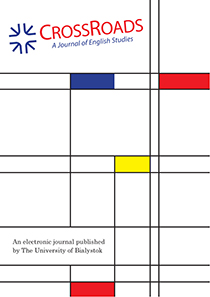Polysemy in language and thought
Polysemy in language and thought
Author(s): Siergiej Grinev-GriniewiczSubject(s): Studies of Literature
Published by: Wydział Filologiczny Uniwersytetu w Białymstoku
Keywords: types of polysemy; terminology; translation; translating dictionaries; evolution of cognition
Summary/Abstract: This paper focuses on the present state of investigation into polysemy, taking into account drawbacks of the existing definitions of this phenomenon. It was found that in Polish and Russian linguistic manuals and encyclopaedias, polysemy as a phenomenon is equalled with a quality for which a new term – polysemantism may be suggested. A brief survey of some of the existing directions in the research of this phenomenon from the point of view of terminology science, translation, terminography and cognition makes it possible to identify some new types of polysemy. A peculiar character of relations between polysemy and homonymy is shown, three sources of polysemy are indicated and such varieties of polysemy as regular polysemy, hyponymic polysemy and consubstantivety are revealed. In translation we come across interlingual hidden polysemy. The development of terminography leads to discovering artificial polysemy and misleading polysemy which are causes of spoiling quality of both dictionaries and translation. In cognition evolution research anthropolinguistic studies made it possible to discover diachronic hidden polysemy of the early words. There are reasons to believe that the development of cognition is based on and results in eliminating this type of hidden polysemy. The resulting tentative classification of types of polysemy reflects progress in investigating this phenomenon and may be used in further research.
Journal: Crossroads. A Journal of English Studies
- Issue Year: 2016
- Issue No: 01 (12)
- Page Range: 19-30
- Page Count: 12
- Language: English

